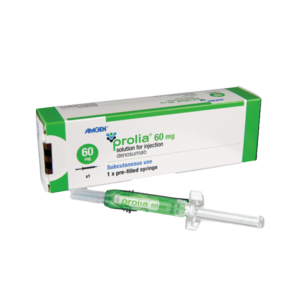If you have osteoporosis, your doctor may prescribe Prolia as a treatment.
Osteoporosis is a condition that causes your bones to weaken. Prolia is prescribed for certain adults with this condition.
Prolia injections are also used to help prevent bone fractures in people with breast or prostate cancer who are taking certain medications.
The active drug in Prolia is denosumab, which is a biologic medication. (made from parts of living organisms.) It’s given by subcutaneous injection (under your skin). If you and the doctor decide that Prolia is working well for you, you will most likely use this drug long term.
 For more information about Prolia, and details about uses, read this detailed article.
For more information about Prolia, and details about uses, read this detailed article.
Like other medications, Prolia injections can cause mild or serious side effects. Talk with the doctor to learn more.
Possibility of bone fractures if skipping or stopping Prolia injections
Skipping a dose of Prolia or discontinuing use of the medication increases the risk of bone fractures. This includes an increased risk of multiple bone fractures in the spine.
When no longer using Prolia, bone turnover increases to above normal values 9 months after the final dose. “Bone turnover” refers to how fast your bones replace older bone tissue with new bone tissue. Bone turnover usually takes 24 months after the final dose of Prolia to return to normal.
What can help
If you use Prolia, you will likely get an injection one time every 6 months. To avoid increased risk of bone fractures, it is important that you do not skip a dose. If you do miss an injection, call the doctor or pharmacy to reschedule as soon as possible. (Prolia injections should only given by a licensed healthcare professional.)
If you and the doctor agree that it’s best for you to stop using Prolia, ask the doctor about alternate medications you could take. We may recommend another treatment for your condition to help your bones stay strong and healthy.


